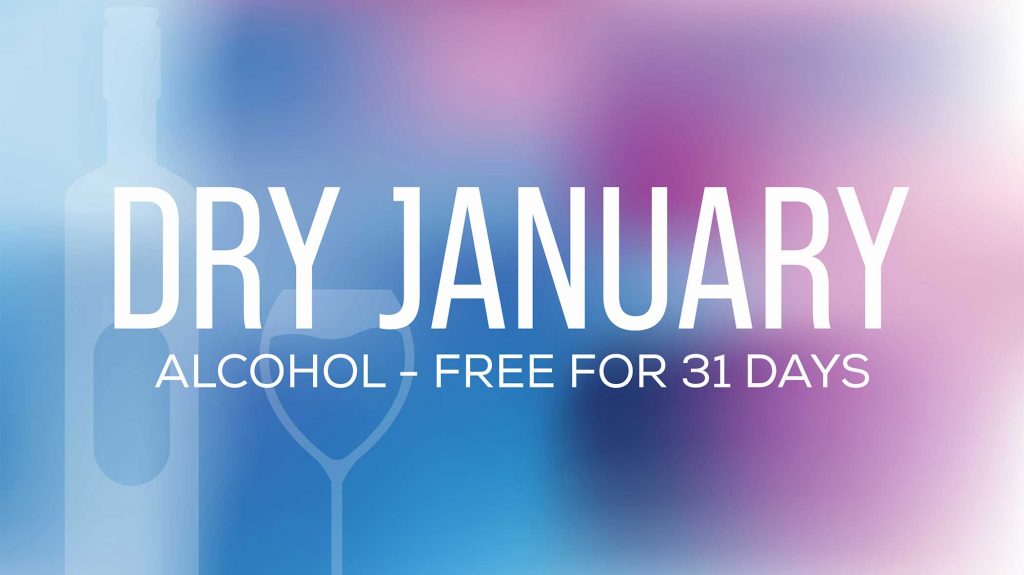In recent years, Dry January has become a way to live healthier after an indulgent holiday season. Even if you do not have an alcohol addiction, abstaining from alcohol can have a positive impact on your physical and mental health.
For some people, Dry January may be the bridge to long-term sobriety. Utilizing tools, like meditation, journaling, and self-help groups can help you maintain the health benefits of an alcohol-free lifestyle.
What Is Dry January?
Alcohol often plays a major role in holiday celebrations, from Thanksgiving through New Year’s Day. Even throughout the rest of the year, we are surrounded by alcohol at most social events, like happy hour and sporting events.
Many people make New Year’s resolutions to change unhealthy behaviors. Dry January is a public health campaign in several countries, including the United States, that encourages people to live alcohol-free for the entire month of January.
Anyone can participate in Dry January – whether you drink moderately or more frequently. Some people may recognize unhealthy patterns and feel motivated to change their drinking habits.
Benefits Of Dry January
Frequent alcohol consumption is associated with numerous health issues, including liver disease, high blood pressure, cancer, and weakened immune system. Dry January promotes a healthier lifestyle, helps you develop healthy skills, and improves well-being.
Benefits of Dry January include:
- better sleep patterns
- improved energy levels
- balanced mood
- weight loss
- improved concentration
- decreased blood pressure/cholesterol
- healthier skin/hair
- increased finances
Someone who engages in binge drinking or heavy drinking may benefit from a dry month.
One month can feel less overwhelming than the thought of not taking a drink ever again. For those at risk of developing alcohol dependence, Dry January may jumpstart a lifestyle change and long-term sobriety.
However, Dry January may not be safe for someone who is already alcohol dependent or struggling with alcohol use disorder (alcohol addiction). If you think you or someone you love may be dependent on alcohol, suddenly stopping on your own can cause severe withdrawal symptoms.
If you want to stop drinking alcohol and are dependent, a medical detox program can help you recover in a safe and supportive environment.
How To Maintain Long-Term Sobriety
After the first month of sobriety, you may start to consider what kind of long-term changes you want to make. For someone who tends to drink heavily or drink as a way of coping, sobriety may have a significant impact on your health and well-being.
If your goal is long-term sobriety, here are some useful tools that you can apply each day:
Take Sobriety One Day At A Time
The thought of “never drinking again” may feel overwhelming, especially if alcohol was a regular part of your lifestyle. Taking your sobriety one day at a time can help you stay in the moment and not get caught up in things you think you’ll miss out on by not drinking.
In fact, you may find that you are more present and able to enjoy life when you’re living alcohol-free.
Join A 12-Step Group
Self-help groups, like Alcoholics Anonymous (AA) and SMART Recovery, can connect you with supportive individuals who have had similar experiences. As a 12-step group, AA can help you learn structure, discipline, and healthy coping skills.
A lot of people find success in AA through a combination of fellowship, service work, and step work. Meetings are held daily all over the world, in person and virtually.
AA and similar self-help groups also help you realize that you are not alone and many people are striving for similar goals.
Embrace Self-Care
In this case, self-care means engaging in daily activities that enhance your well-being and help you grow. Self-care may involve morning meditation, journaling, yoga, listening to music, or a nature walk.
Many people live busy lives, rushing from one task to the next. It’s easy to get caught up in the chaos of life and consider reaching for a drink at the end of a long day. Mindfulness activities help you learn to pause and reflect, instead of reacting.
Stay Connected
We all need help sometimes, especially those in recovery from drug or alcohol abuse.
As you navigate long-term sobriety, you should build a support system of people and community resources. If you find yourself struggling or experiencing cravings, a reliable friend in recovery or a professional may be able to guide and support you.
Seek Treatment
Making a lifestyle change is challenging, especially when it comes to drug or alcohol abuse. If you find yourself struggling to stay sober through Dry January, or even months later, you may consider professional treatment.
An addiction treatment center can help you learn how to change unhealthy behaviors and learn healthy coping skills. Treatment can be on an inpatient or outpatient basis and involves several levels of care, depending on your needs.
Treatment services may include:
- counseling
- group therapy
- behavioral therapy
- wellness activities
- family therapy
- 12-step facilitation
- medication-assisted treatment (MAT)
If you or a loved one is struggling with alcohol abuse, please contact us today to learn more about treatment options.
Sources:
National Institute On Alcohol Abuse And Alcoholism (NIAAA) — Treatment for Alcohol Problems: Finding and Getting Help
National Library Of Medicine — What is Dry January?
Surgeon General — Recovery: The Many Paths To Wellness



